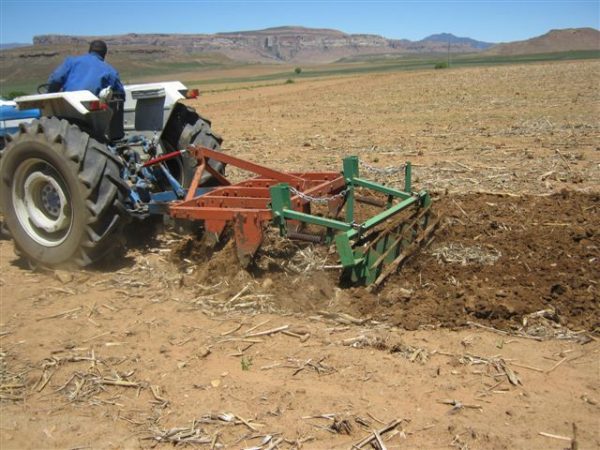The plan does not meet the minimum requirements of scientificity, fairness, inclusivity or clarity and is therefore doomed to fail.
The agricultural sector deserves a more effective master plan that involves all stakeholders in drafting it to ensure no one becomes a loser. It must be underpinned by expertise and proper processes and written in clear, honest language.
There master plan signed in parliament on Thursday has three fundamental flaws:
- It is based entirely on the ANC’s narrow ideological premise on land ownership, leading to increased racial tension. The term “transformation” is merely a sweetening of their distorted historical perspective and romanticising their outdated socialist idea of redistribution.
- It is a value chain driven plan focusing on the processors, packers, distributors and traders and not the farmers as primary producers.
- The interests and aspirations of the current generation of commercial family farmers are not articulated anywhere in the plan. No recognition is given to their role in anchoring food security and agricultural exports, and there is no reference to their need for profitability and sustainability. Saai is upset by well-established agricultural organisations that have signed a document in which the interests of the farmers are not explicitly protected.
The fact that the plan recognises the input of trade unions, activist NGOs and unknown academics rather than agricultural organisations speaks volumes.
The transformation motif dominates every paragraph, every goal, pillar and focal point of the master plan, as if agriculture is all about transformation. Yet the document does not clarify what is meant by transformation. Based on the experience of the past 20 years, most small and medium-sized farmers suspect that this is a veiled way of saying that the growth of the sector and new opportunities may be exclusively for the benefit of black people and that it will preferably enrich politically well-connected cadres.
Saai was maliciously excluded from the drafting and discussion of the master plan and was given no opportunity to provide any input. Saai would under no circumstances have signed off on the published text. Therefore, we challenge the drafters of the plan, the minister and her department and the signatories to publish comparative lists of successes and failures of agricultural transformation over the past 28 years. On behalf of its 10 000 members, Saai challenges the signatories of the master plan to come forward and declare that they want more of those transformation outcomes!
The ANC’s premise is that transformation is more important than service delivery, efficiency and sound business principles. This led to the disintegration of the railways, ESKOM, the SABC, numerous municipalities and many other state institutions. The same premise is now applied to agriculture. Although some organisations in the farming environment believe they can persuade the ANC to manage agricultural transformation differently, most family farmers are very sceptical about it, especially since it is defined so vaguely in the master plan.
Even more disturbing than the blind pursuit of the ANC’s ideology and transformation paradigm is the place allotted to large companies by implication. By singling out “private sector value chain partners” as agents for implementing the plan, the average rural farms are left out, cut out and replaced. As with the United Nations’ 2021 Food Systems Summit, a master plan for agriculture must be a farmer-centred plan. No large company in the agricultural value chain is indispensable, but agriculture cannot exist without farmers.
Only a few large companies will benefit from the master plan. The soulless institutions with faceless policymakers hiding behind boards, credit committees, and artificial intelligence decision-makers to increase profit for their unknown shareholders will become even stronger. On the other hand, the broad base of real families who try to make a living from their farms plays an almost negligible role.
Not only Saai rejects the plan but also TAU SA and a host of other agricultural structures, co-operatives, industry organisations and local farmers’ associations that have similar problems with the master plan. However, these organisations will not only highlight the shortcomings of the plan but will develop a more appropriate, alternative plan. Unlike the flawed, state-driven plan, the alternative will be more transparent and inclusive. All interested agriculture-related organisations are invited to participate, and all farmers will also have the opportunity to provide input.
The alternative plan will be introduced in parliament by opposition parties outside the ANC’s sphere of influence. Farmers and agricultural structures who are not satisfied with the master plan can, regardless of size, age, race, turnover or political affiliation, contact Saai at francois@saai.org or Bennie van Zyl at TAU-SA.








